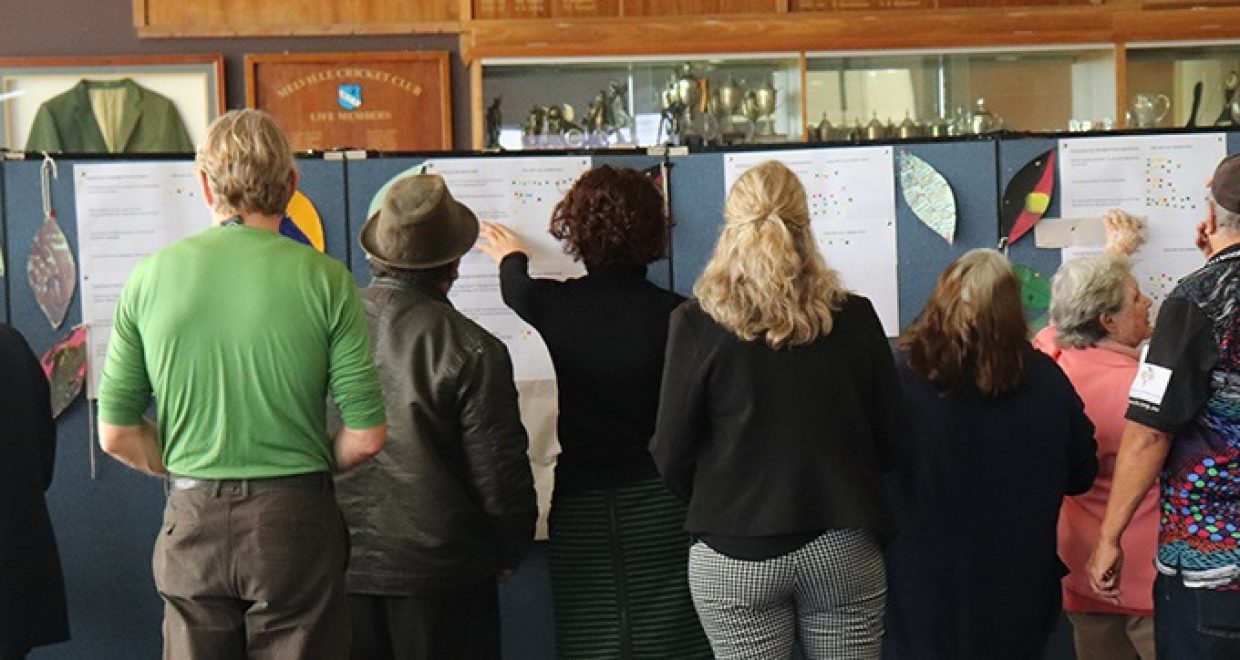Tolerating discomfort and engaging authentically – ethical challenges in developing culturally responsive clinical practices with Aboriginal and Torres Strait Islander people
Australian First Nation peoples’ mental health and wellbeing experiences are holistic and deeply linked to Country, kin and culture. A recently published article, “Understanding and working with different worldviews to co-design cultural security in clinical mental health settings to engage with Aboriginal and Torres Strait Islander clients”, explains how bringing First Nation worldviews together with non-Indigenous worldviews has opened up conversations and reflections about the ethical guidelines by which many mental health practitioners frame their work practices.
The article poses an ethical dilemma; a call to action to decolonise western constructs of clinical practice and therapeutic care. “How can the Australian Psychological Society engage their membership in conversations that challenge their purpose and practices that impact the cultural safety of Aboriginal families?”
The article uses the Australian Psychological Society (APS) Code of Ethics as a lens for critique to illustrate current barriers and enablers to culturally secure practice for Aboriginal clients. By working directly with local Elders and engaging in a personal ‘storying’ process, non-Aboriginal practitioners describe developing a greater level of confidence to work with Aboriginal clients through disclosing personal information. The ‘storying’ process emerged through the research as an essential component to establishing relationships to navigate these different worldviews in a safe and trusting space [link to paper: https://onlinelibrary.wiley.com/doi/10.1111/eip.12844].
Integrating new learning (unlearning first)
As a result of engaging with local Elders, staff working in a regional site have taken to “roaming”, effectively turning their service inside-out to be more visible to the community and walking amongst them. This presents a critical challenge to ethical codes of conduct and seemingly objective professional practice standards. For example, the APS Code of Ethics Ethical Standards on Competence guide practitioners to provide “psychological services within the boundaries of their professional competence… (including)…. within the limits of their education, training, supervised experience and appropriate professional experience… (and)… based on the established knowledge of the discipline and profession of psychology” (APS, 2010: 18). Western structures are powerfully influential in two ways, first constricting the capacity and openness of non-Aboriginal practitioners to accommodate different lived experiences, but perhaps, more importantly, reinforcing to practitioners that the bounds of existing structures contain ‘all there is’ to the discipline of psychology and its professional practice.
A new kind of competence
Service providers trust that the relationships they have come to develop with the Elders will serve as a protective factor to the level of discomfort and tolerance of uncertainty they experience. This can be very confronting but also liberating as one service executive reflected: “It means letting things evolve naturally and organically. The Elders had to remind us to slow down and look at the process of change and the relationships we needed to build.”
Personal and professional ways of being, knowing and doing are interwoven through these shared experiences. It is a personal journey of change experienced by clinicians and Elders alike, acknowledging both the shared (and oftentimes hurtful) histories as well the opportunities to move forward together in reconciliation.
Links
https://www.lookingforwardproject.info/project-resources
https://news.curtin.edu.au/stories/joining-cultural-dots/ (example of partner service impact)
https://waamh.org.au/sector-development-and-training/aboriginal-engagement/moving-forward-project (peak agency example)
https://www.noongarculture.org.au/ (Noongar Culture, South West Land and Sea Council)
Marg O’Connell, School of Allied Health, Curtin University, is the co-author of “Understanding and working with different worldviews to co-design cultural security in clinical mental health settings to engage with Aboriginal and Torres Strait Islander clients”. This article is Open Access, and therefore freely accessible.






